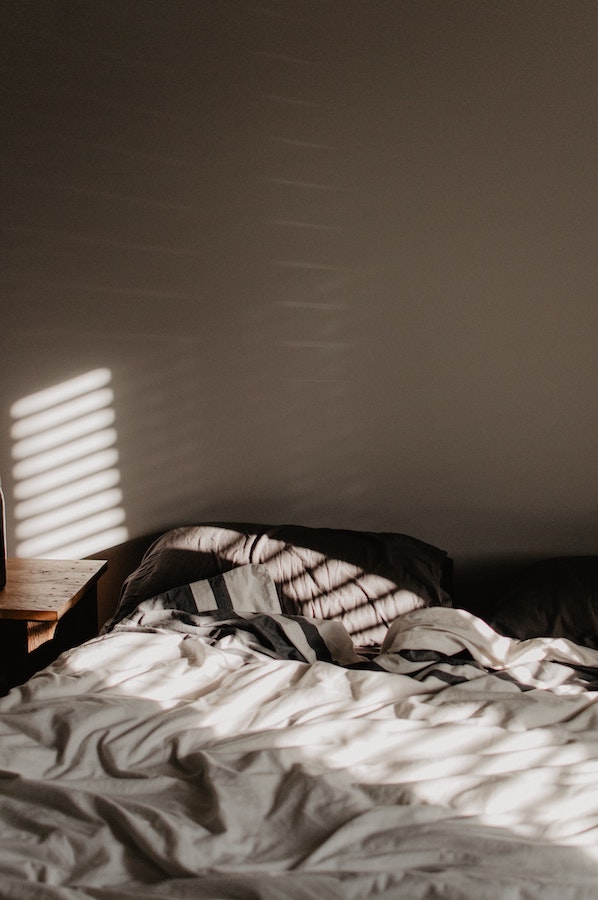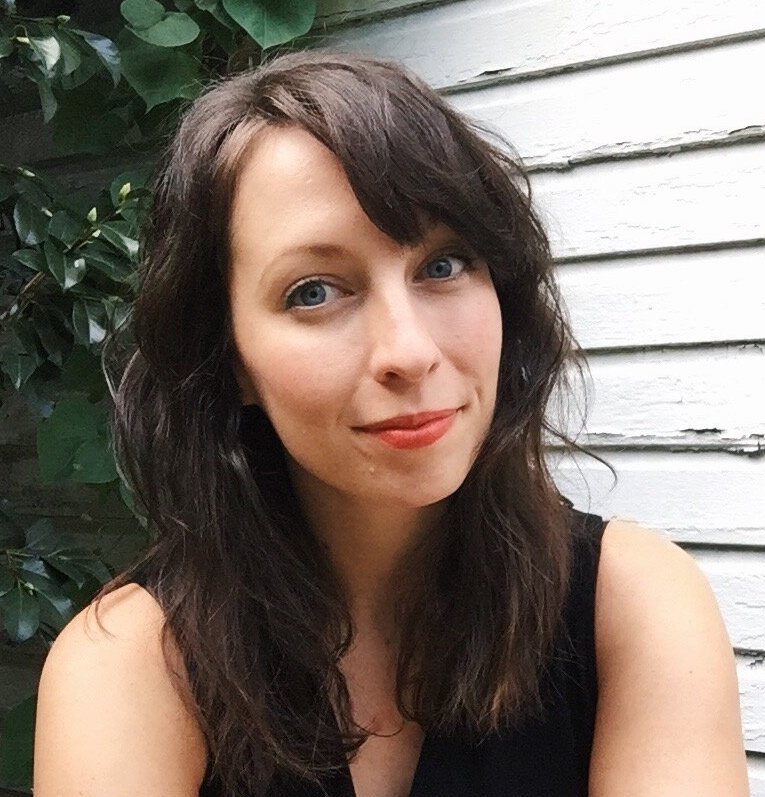
Why My Partner And I Slept In Seperate Bedrooms After Having A Baby
The transition into motherhood was a struggle for me. While I wouldn’t have necessarily called myself fearless, I was never an overly cautious person, never someone who felt the need to prepare for the worst or worry about what might go wrong. You won’t be surprised to learn motherhood changed that.
It turns out that human babies need to learn how to do absolutely everything, and even the most basic things like eating and sleeping present an astounding amount of danger. Overnight, I went from being the kind of person my family had always called “carefree” and “free-spirited” to someone who kept vigil, white-knuckled and fretting, over my newborn around the clock.
“I went into a maternity leave that was governed by the twin rulers of fear and pain.”
My husband Aaron had only two weeks of paternity leave, so I was alone as I went into a maternity leave that was governed by the twin rulers of fear and pain. Breastfeeding was not the intuitive dream I’d imagined— it was confusing, and it hurt. The nuances between a good and a bad latch were almost indiscernible to my eye, but it was apparently possible for the baby to appear to be eating while actually starving. The large breasts I’ve had my whole life became the size of small planets, and I agonized over their management. I showered with a bikini top for two months just to prevent the water from streaming directly onto my cracked nipples. The fear of SIDS loomed large over us, and I became a light and fitful sleeper, despite being exhausted. I couldn’t bear to put my baby down, to stop feeling the warm proof of her, alive and breathing in my arms.
I dreaded nights. The sense of another day having slipped away under the hamster wheel of feeding, diapers, and naps without having seen the sun or another adult affected me deeply. The witching hour, as so many new parents know, occurs between 5 and 7 p.m., when the baby, seemingly also tired of the monotony of another day spent laboring to keep it alive, screams and cries and cannot be pacified. We trudged through the bedtime routine, after which I’d be wracked with anticipation of the next waking.
“We’d both become parents, both undergone this fundamental change, but only I was required to sacrifice my mind and body.”
Newborns are shockingly noisy sleepers, and this new mortal fear I carried made me acutely tuned into my daughter’s sounds in a way my husband Aaron was not. When she stirred in the night, I’d shoot up, instantly alert. My brain flooded with endless concerns: Was she okay? Was it a nightmare? Could she be getting sick? Was she worried? (Do babies worry?) I’d lie back down, anxiety gripping me in its vice while Aaron slept on. I fumed at his unmoving form, unable to quell the growing resentment that he was able to sleep, as if it was a choice. I was so jealous of him, of his freedom during the days, even when he told me how miserable he was to be away from us. We’d both become parents, both undergone this fundamental change, but only I was required to sacrifice my mind and body, well beyond pregnancy and birth. Only I seemed to be suffering.
I’d tell myself I was being unfair. I loved my husband; he couldn’t help it that he was able to sleep when I couldn’t, that paternity leave was so abysmally brief. What did it say about me that my reaction was to silently rage against him? Shame seeped into my resentment, and I’d lie there in a maelstrom of emotions, the only one in my house not sleeping.
“I loved my husband; he couldn’t help it that he was able to sleep when I couldn’t.”
Then, many things happened at once: our daughter dropped her night feeding, I went back to work, and a breast pump came into my life. Days at the office were discreetly squeezed around the messy and uncomfortable necessity of pumping every three hours behind any locked door I could find. Even though our daughter was sleeping more soundly, I was still waking up to every grumble, while Aaron would only wake if she was wailing or in true distress. I couldn’t continue in this state—I was in a fog, increasingly angry by the day. So we decided to try something that felt a little bit scary: I would move into the guest room, and Aaron would be in charge of the nights. In a show of support, Aaron bought me a silk sleep mask and outfitted the guest bed in all new organic cotton sheets. It was the kindest, most beautiful gift, because what it said to me was, “Go. Take your time. I’ve got this.”
The relief came slowly. At first, what I mostly felt was incredible, gnawing guilt. What kind of a mother was I if I couldn’t be there for my daughter all the time? I’d text this to my best friend, a mother of two, and she’d write back simply, “You can’t pour from an empty cup.” I’d repeat this to myself after saying goodnight to my family and creeping into the guest room. Looking into the mirror at a face I barely recognized, I’d say to my reflection, “Your cup is dry.” Some nights it was easy to accept that I needed the break, that I deserved the rest. Others, I would take out my ear plugs and strain to listen, convinced I was needed. The soft sheets beneath my fingers would bring me back, grounding me into the moment until I could settle.
“I don’t think it’s possible to know how much you have internalized how something is ‘supposed to be’ until you find yourself struggling to live up to that expectation.”
I don’t think it’s possible to know how much you have internalized how something is “supposed to be” until you find yourself struggling to live up to that expectation. I’d believed that being a good mother meant loving breastfeeding, rising effortlessly to meet my daughter’s cry at any hour, fueled by a love impervious to exhaustion and physical discomfort. I thought it meant sleeping next to my husband at any cost.
This made it difficult to convince myself that we were doing the right thing, even as I could see the positive results: I was better rested, yes, but mostly I felt buoyed by Aaron’s support. He could still see me inside this new skin of motherhood, and he could see I needed something to change. After he took over nights, I felt like the physical demands of newborn life became more equitable. It made me feel like we were a team; that it wasn’t just my life that had been fundamentally altered.
Over time, I got more comfortable with it. Aaron started sending me tweets he found about other couples who had slept in separate bedrooms at various points in their marriages: during illness, during jobs that were on alternative schedules, during high stress times at work that caused restlessness in the nights. Then there were couples who always slept in separate beds, whether because they wanted different conditions or because they simply liked their space. Our intimacy wasn’t negatively affected (sex after baby is an essay for another time!), and it also didn’t change for these couples. In many ways, choosing to go against convention to do what was right for us only added to our intimacy— it takes trust to pursue a need that doesn’t look like what everybody else is doing.
When our daughter turned one, we moved her into her own room, and I returned to our bed. I bought a queen-sized set of the fancy sheets to bring with me.
Stephanie H. Fallon is a writer originally from Houston, Texas. She has an MFA from the Jackson Center of Creative Writing at Hollins University. She lives with her family in the Blue Ridge Mountains of Virginia, where she writes about motherhood, artmaking, and work culture. You can find her on Instagram or learn more on her website.




